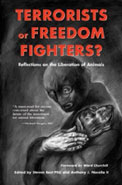Nick Griffin, The BNP, And Why Hate Crime Laws Are Still A Really Bad Idea

Nick Griffin
People who advocate the enactment of hate crime laws in the U.S. usually do so with well-meaning intentions. They seek to increase the penalties for bias-motivated crimes so as to discourage others from engaging in similar anti-social actions. Unfortunately, it’s not too far a jump from hate crime laws to hate speech laws, which punish persons for merely uttering hatful remarks. In fact, several universities in the U.S. have already enacted extremely restrictive speech codes on their campuses, and the time may not be far away when we will see such codes being proposed on a statewide or even nation wide level.
For a scary look at where all of this can lead, consider the case of Nick Griffin. Griffin is the leader of the ultra-right British National Party (BNP), and has been on the British government’s sh*t list for quite a while. He and several other BNP members were recently charged with “inciting racial hatred” after an undercover journalist taped a BNP meeting during which racist sentiments were expressed. Griffin himself was charged because he strongly criticized the Muslim religion, declaring it too be “a vicious, wicked faith”. Keep in mind that this was a private meeting, not a public one, and that the participants had no idea their comments would leave the room. It’s also worth considering that quite a few Americans (myself included) have made comments about Islam that are about as harsh as what Griffin said. In Britain, columns like this one, written by American conservative Cal Thomas, are enough to get one thrown in jail.
This is not meant as any defense of the BNP. It’s quite clearly a racist organization, and its membership seems to be comprised mainly of thugs and idiots. But it’s easy for leftists to use such right-wing extremists as justification for passing restrictive speech codes. Then it becomes just as easy to turn those codes against the general public, and thus stifle any constructive debate on topics such as the threat of radical Islam to democracy.


